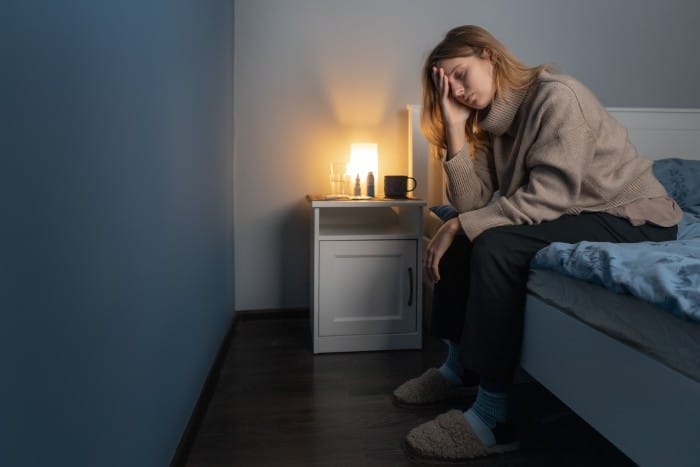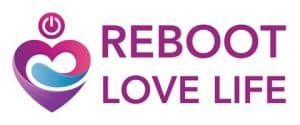Love might be one of the purest forms of emotion known to us, but it is not all that innocent. If it can make us the happiest person on earth, it also has the power to destroy us completely.
Love can kill you by interfering with the vital functions of your heart through arrhythmia and high blood pressure. These conditions literally break your heart. Other forms of damage include substance abuse, self-neglect, bad diet, disturbed sleep, torturing yourself, and committing suicide.
Understanding how love can kill you will better prepare you to face the encompassing challenges and even come out like a winner. Not all is lost, even when it feels so.
What Does Love Can Kill Mean?
Love can kill means that the emotional breakdown following the loss of a loved one takes us down with it. Death becomes a possibility when an event hits our psyche hard as our physical health also gets affected. While people do recover from such traumas, they are usually never the same person.
Do not take such traumas lightly, whether you are the one going through it or it is someone you deeply care about.
The repercussions spiral out of control and render any damage control ineffective by the time you realize the gravity of the situation.
Seek therapy to ease the pain instead of wanting to be the lone warrior. Even the best fighters need a strategist for wars.
1. Physical Effects Are Concerning
Losing a loved one is not only about breakups and divorces.
It also includes the death of a beloved or being rejected by a person with whom we almost had a one-sided love affair.
The harm is not only emotional but can also turn into a physical downfall pretty quickly. We invest time, effort, and emotions into our relationships.
TABLE: Most Common Experiences Of People During A Heartbreak
| Effect | Percentage |
|---|---|
| Negative changes in eating habits | 93% |
| Hormonal imbalance | 41% |
| Gastric problems | 32% |
| Change in sleep pattern | 69% |
| Decreased immunity | 28% |
| Extreme depression | 55% |
| Severe change in weight | 17% |
| Falling seriously ill | 6% |
Note: Percentage does not equal to 100 due to commonalities in experienced effects.
When our hopes get crushed, so do we. A recovery, though possible, is an uphill battle.

2. Self Harm And Exploitation
People have also been known to invest themselves in other people to the extent that they allow their partners to take advantage and exploit them.
They become habitual to exploitation and being used but blame themselves for it.
Those whose love is not returned harm themselves by either cutting themselves up or torturing their bodies in some way.
By the time reality hits them, it’s often too late, and they spiral down the rabbit hole of further harm even when they can clearly see their loss, both mental and physical.
Instead of developing the strength to rise, they start loving their miserable situation and being the victim.
3. Changing Our True Self
Apart from its physical and mental aspects, often in love, we tend to kill a side of us that does not align with our partner.
To please the person we love or avoid any conflicts, we essentially mold ourselves to their whims and fancies.
In the process, we inevitably lose our true selves, thus essentially killing who we really are as a person.
Unfortunately, this change isn’t positive most of the time, i.e., it doesn’t make us a better person by eliminating our flaws.
Instead, it makes us compromise and put up with unreasonable behavior because we fear losing the person we love.
How Can Love Kill You?
Love has different tricks up its sleeve through which it can kill you. If it is one of the most blissful experiences living beings go through, it can also become deadly pretty quickly if gone wrong.
Here is a detailed version of the different ways in which love can kill you.
1. By Literally Breaking Your Heart
Heartbreaks can result in a broken heart when you lose a loved one.
There are no warning signs in the Takotsubo syndrome, aka the broken heart syndrome, unlike a traditional heart attack.
Arrhythmia or an irregular heartbeat is a common observation for up to a year after losing a loved one.
It has been observed that the risk of a heart attack increases 21 times during the next 24 hours. Even after the end of the first week, it is still as high as 8 times.
Practically, there is an elevated risk level for up to a month. Thus, in a nutshell, physical pain follows emotional pain.
The metaphorical broken heart becomes a literal broken heart.
In most cases of Takotsubo syndrome, the condition is temporary, and you can recover completely, but you cannot ignore the chances of fatality.
2. Murder By Partner Or Other People
This one might seem a bit too odd or extreme, but it is a common possibility, surprisingly.
When relationships go wrong due to whatever reasons, one partner might end up killing the other one out of pure fury or frustration.
If you are in a happy relationship, it might be a troubled ex, a stalker, or relative of your partner who might not be too pleased over the fact of you and your loved one being together.
Exes and relatives have been known to take revenge even after several years. Thus you can never be sure whether the storm has indeed settled down.
3. Lone Or Mutual Suicide
High levels of chronic stress in general life can push you over the edge in instances of divorce, breakups, the death of a loved one, and rejection.
Take the classic love tragedies like Romeo and Juliet and Othello, for example.
When a person is grieving, and they find no way of enjoying the blissful company of their loved one, they do not see any point in living further.
Either people kills themselves, or the couple commits a mutual hara-kiri.
In their eyes, unfulfilled love and being forced to spend a life with someone else is disgraceful.

4. Torturing Themselves Over Unrequited Love
Those who do not find the strength to kill themselves instantly resort to a more deranged form of suicide.
They torture themselves in the hopes of finding some redemption for their failure to be the hero in the battles of love.
By just breathing and spending their days aimlessly, they stop living their life completely.
By actively choosing not to take care of themselves, they try to go down the road of self-harm and hopefully a peaceful death in the long run.
Their health declines while they are battling the pangs of depression, anxiety, anger, and grief with no wish to improve.
They find it’s easier to succumb than to get back up and fight.
The emotional trauma accompanied by an erratic heart rate and blood flow results in blood clotting in some cases.
5. The Shock Is Too Much To Handle
Those who do not wish to die actively but are too numb to react due to the shock cannot cope with the loss.
They not only feel lonely, discouraged, and depressed, but melancholia is also actively harming their bodily functions due to the disruption of the chemicals and hormones in the body.
You must have heard or read about people dying within a few hours or days after the death of a loved one.
Thus, while a person is trying to make sense of what has happened, their body goes into a shock and begins killing them slowly but steadily.
6. Bad Diet
When self-care takes the backseat, bad habits creep in.
One of the immediate responses is that either we do not eat at all or start stuffing ourselves with salty, sugary, and fatty junk food.
The ready-to-eat or fast food diet is laden with toxic chemicals and preservatives that give us a sense of fulfillment when we are hungry but make our bodies crave nutrients.
Unaware, we also become addicted to these foods, worsening the situation. Tons of problems start surfacing in the form of physical and mental health issues.
Some of them are weight gain, weak eyesight, back pain, declining bone density, temporary high but a lower low due to the guilt of caving in to the temptations.
Looking at ourselves in the mirror kills our confidence and esteem, while the garbage we eat is essentially doing the same job in our bodies.
7. Disturbed Sleep Schedule
Due to the pain of love and separation, you’ll not be able to sleep, peacefully at least.
When we are disturbed emotionally, mentally, and physically, our sleep pattern is bound to get affected.
The gravity of the trauma is inversely proportional to our sleep quality.
Though insomnia cannot kill you directly, the effect it can have on your body can prove to be fatal in the long run.
Your immune system will be impaired, and problems like weight gain, cardiovascular diseases, type 2 diabetes, a few forms of cancers, high blood pressure, sleep apnea can creep in.
You’ll feel fatigued, depressed all the time, which might encourage you to end your life.
Further, psychosis and hallucinations can worsen your problems and indulging in self-harm becomes a strong probability.
8. Makes Us Vulnerable To Addictions
Humans are prone to look for the easy way out whenever a problem arises.
Many people who face failure in love or are forced to let go of loved ones seek an escape from reality.
Cigarettes, alcohol, and recreational drugs are often the most sought-after options for stimulating the brain’s pleasure points.
People feel that becoming oblivious to the pains of their life for even a short duration is worth it.
Little do they know how the temporary usage of these substances spirals out of control and become full-blown addictions.
Once addiction sets in, alcohol and drugs become your go-to meals every time reality hits you.
You lose control of yourself when high, realize your actions when sober, and feel even more worthless than before, making you even more depressed than earlier.
Thus you resort to more substance abuse. It becomes a never-ending chain till it kills you ultimately.

How To Deal With The Pain Of Unrequited Or One-Sided Love?
To deal with the pain of unrequited love, stop living in denial and accept the gravity of the loss. Then re-align your focus on other interests, friends, and family till you are ready to date new people. If the loss feels overwhelming, be open to seeking therapy. You’ll be okay as long as you fight.
Whether it’s about love not being reciprocated, divorce or a breakup or even the death of a loved one, unrequited love cannot be limited to just one form.
1. Acknowledge The Grief
There is no sense in living in denial and turning away from the reality of your loss. The faster you embrace it, the faster you can move towards healing.
Denial might give you temporary happiness, but it keeps you on square one all the time.
Once you accept that you aren’t happy and are extremely hurt, it is only then you focus on the process of making life livable again.
Further, living in denial reeks of desperation which people can sense from a mile away.
You only become an object of more pity which again shows you the face of the reality you were trying to escape from in the first place.
2. Re-Adjust Your Focus
The only way to stop dwelling on your losses and emotions is to take your focus elsewhere.
Even if this feels like the most challenging phase of your life, it does get better for everyone if they are willing to hustle through.
The only thing you need? A firm belief that you are a fighter. Focus on things that mattered to you when everything was okay.
Due to this loss, your priorities changed.
It is time to re-align yourself with earlier priorities to take back control of your life and gradually begin phasing out the grief.
3. Socialize Even If You Don’t Want To
Meeting people isn’t about keeping a happy face and showing the world how unaffected you are.
Tagging with your friends and families does a subtle thing that most people aren’t even aware of.
It gives you a peek into the lives of others and the problems they are facing.
Sometimes instead of making yourself the object of focus, make them the main character. Talk to them about their life.
This might even make you realize that your problems are minuscule compared to what the other person is going through.
4. Establish No Contact
Not staying in touch with the person who rejected you is crucial to building yourself back up. It only amplifies your grief.
In the event of the death of a loved one, it translates to staying away from things or places that remind you of the deceased.
How you execute no contact varies greatly depending on the people and their situation.
When living together or losing a loved one to death, it might even be as extreme as staying somewhere else or leaving the city.
Whereas in common rejections or your usual breakups, no texting, no calling, and no stalking on social media or physically are adequate measures most of the time.
5. Seeking Help Doesn’t Equate To Weakness
Who said that this is a battle you need to fight alone? Barging into enemy territory alone was never seen as a sign of bravery during ancient times.
Even when plotting sneaky assassinations, you needed a couple of trusted aids to watch your back. What’s wrong with making your therapist that trusted aid?
Talking to your therapist will not only help you vent out the frustration but also help you see things from perspectives you might be missing.
It will add a pillar of much-needed support to the building of self-improvement you’re trying to build.
When in doubt about seeking therapy, remember that only the brave accept that they became weak and were thus beaten.

6. Fall But Get Up Again
The process of healing is not a one-time thing. It is an ongoing process that might require several iterations.
Many times you’ll find yourself back on square one, but you’ll not be the only one who has done so.
Repeated failure and frustration are a normal part of the process. It is how you react to these that makes or breaks you ultimately.
So, when you find yourself on the ground and trampled by grief and self-pity, do not forget to get up and start all over again if needed.
Keep pushing through, and you’ll come out of this one day as long as you’re trying sincerely.
7. Meet New People
Situations like these make us think that we’ll never be able to love anyone else again. How can you be the judge of that without even meeting new people?
Sure, go ahead and make that statement once you’ve seen a hundred new people.
But it is doubtful that you’ll not find someone remotely interesting and worth pursuing if you actually meet a hundred new people.
Don’t fall into the trap of romanticizing grief and losses like the protagonists in our movies do.
The real romance lies outside the circle of self-pity if only you’re willing to give someone else a shot!
Conclusion
Many people are killed by love just because they do not take timely steps to prevent the depreciation of their life.
They try to be a hero and think it’s wise to be the lone warrior. The bigger the loss, the greater the measure needed to mitigate the damages.
That includes an openness to become a completely different person and involve other people to help you out if needed.
Love can and will kill you if you don’t cut the roots of grief that dig through your psyche.
